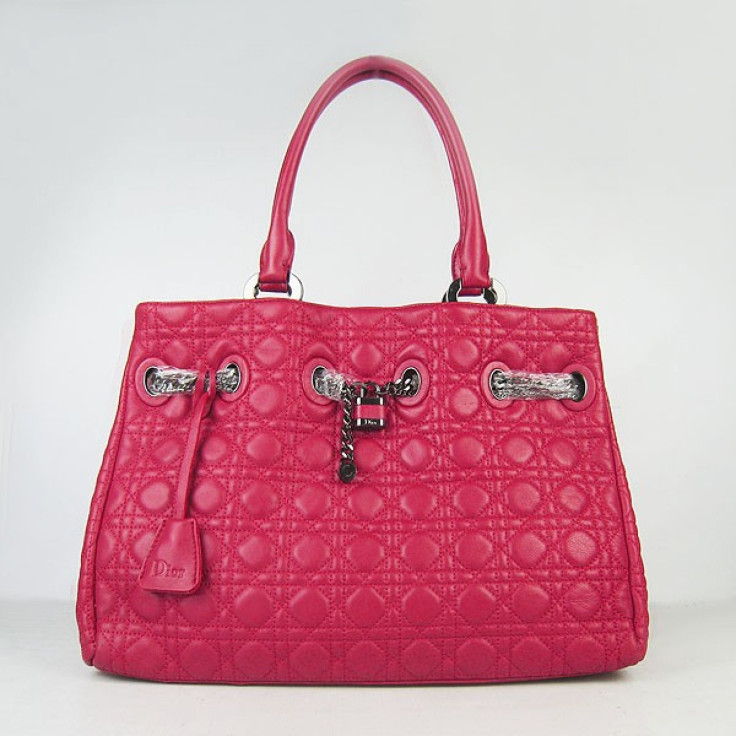Let Them Eat Cake: Cost Of North Korean Leader’s Wife’s Dior Handbag Equal To Annual Income Of Average Citizen

The young wife of North Korea’s leader, Ri Sol-Ju, was recently photographed with her husband carrying a small Christian Dior handbag that sells for 1.8 million won ($1,600) in South Korea’s most exclusive boutiques.
The cost of that luxury accessory is roughly equal to the average annual income in North Korea, according to the Daily Telegraph newspaper.
Ri, whose identity as Kim Jong-un’s wife was only recently confirmed by North Korean state media, presents a dramatically glamorous contrast not only to her dour spouse and the country’s military officers, but also to the residents of a country scarred by extreme poverty, famine and starvation.
The United Nations estimated last year that 3-million people (about one-eighth of North Korea’s population) will require food assistance in 2012. In the mid-1990s, a particularly brutal famine reportedly killed hundreds of thousands of people.
Amnesty International believes 1-million North Koreans have died of starvation since that time, while millions more remain malnourished.
Making things worse for the people, when North Korean government officials reneged on a promise to cancel its nuclear missile program, the U.S. similarly squelched a food aid program it had offered.
The cost of North Korea’s subsequent (failed) rocket and satellite launch in April -- $850 million – could theoretically have been used to feed millions of hungry people in the isolated county.
The Daily NK, a South Korean-based newspaper that focuses on the North, wrote earlier this year that hunger and malnourishment have stunted the growth of many North Korean youths, making them unfit for labor on farms and factories. The publication indicated that some people between the ages of 17 and 30 are as short as 3-feet-11.
However, Kim Jong-un has spoken openly about the country’s poverty – last week he told a delegation of visiting Chinese officials: “Developing the economy and improving livelihoods, so that the Korean people lead happy and civilized lives, is the goal the Workers’ Party is struggling toward,” according to China’s state-controlled Xinhua news service.
The statements would suggest that Kim is moving away from the policies of his father, Kim Jong-il, whose principal priority was on developing the military.
Chang Yong-seok, a North Korea specialist at the Institute for Peace and Unification Studies at Seoul National University, commented to the New York Times: “Kim Jong-un must promise economic recovery and improvement in the people’s lives to justify his rule. But he still mentions the military-first policy. So it will be too rash to expect that he will replace the military-first policy with an economy-first policy. He most likely means that since the military can stand on its own for now, his country must give urgent attention to the economy.”
© Copyright IBTimes 2024. All rights reserved.











